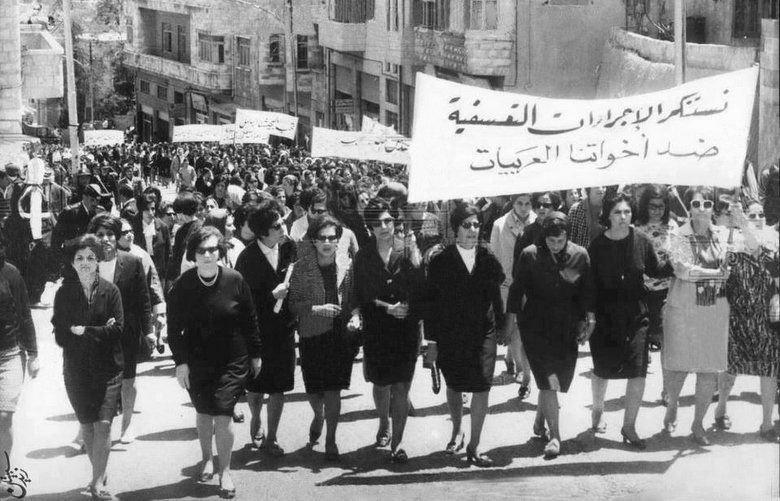How Women Are Respected and Valued In Jordan

Photo: Pinterest
By: Eman El-Ajlouni / Arab America Contributing Writer
Cultural, religious, and socioeconomic influences impact women’s respect in Jordan, as they do in many other countries. Given Jordan’s predominantly Muslim population, beliefs, actions, and behaviors regarding women are heavily influenced by Islamic principles. This article emphasizes the obstacles and advancements in the battle for gender equality while looking at some of the ways that women are valued and respected in Jordan.
Family and cultural values
Like every Arab culture and society, the family plays an essential and vital to Jordanian society, and women are valued highly as mothers, daughters, and sisters. The roles they play in caring for others and taking care of the home, as well as their contribution to the family and its establishment, are valued and praised.
Learning and Education
In support of women’s and girls’ education, Jordan has achieved significant progress. Females are encouraged to seek career and postsecondary education possibilities, and they have access to high-quality education. according to statistics of 2021 over 98% of Jordanian females are educated. The growth in women’s employment across a range of industries has contributed to the improvement of the country since it encourages women to work in a variety of disciplines and across different kinds of jobs. In addition to their employment in medical and related health professions, they have a role in working in businesses, institutions, banks, and all governmental and private organizations.
Participation in workplace
Jordanian women have begun to work in many spheres of contemporary life because of Queen Rania Al Abdullah’s unwavering support and concern. Their effort strikes a balance between the country’s numerous efforts and advances its economic progress. Women are actively employed in Jordan and have roles in a variety of fields, including business, government, healthcare, and education. The data supplied by the International Labor Organization indicates that when compared to other numbers about women’s participation in the workforce, 62% of women in Jordan hold managerial positions. The economy of the country greatly benefits from the contributions of women, and efforts are made by the government to promote gender equality in the workplace.

Women protest in downtown Amman, Jordan, 1968 / Photo: Wikimedia
Statutory and Legal Rights
Women in Jordan are granted legal rights, such as the ability to vote and seek for public office. Jordanian women were given 15 seats out of 130 seats in the Jordanian Parliament, according to a quota system that was put into place in January 2003. The “Eye on Women” initiative was introduced by the Solidarity is Global Institute in Jordan in 2016 and 2020 to track the participation and response of women in political campaigns. Laws were passed to progressively enhance women’s legal standing and safeguard their rights in relation to marriage, divorce, and inheritance. Jordan is a participant in many global organizations that uphold the fundamental human rights of women. In order to empower Jordanian women in society, His Majesty King Abdullah and Queen Rania Al Abdullah have been working together to develop institutions, programs, and projects that would enhance the status of women in the country. Jordan is a participant in many global organizations that uphold the fundamental human rights of women. In order to empower Jordanian women in society, His Majesty King Abdullah and Queen Rania Al Abdullah have been working together to develop institutions, programs, and projects that would enhance the status of women in the country. One instance of such a platform is the “all on board” initiative, which was introduced with the support of Her Majesty the Queen, in collaboration with the International Labor Organization and the Jordanian Association of Banks. In order to promote women’s economic involvement, this digital platform seeks to give competent women the opportunity to hold senior and leadership roles in the Jordanian private sector. boosting gender parity and diversity to improve the work of businesses.
Public Spaces and Social Interactions
In Jordan, women are expected to be treated with respect in all social situations. It is normal to address ladies with suitable titles and to express respect for them in social settings. Politeness and respect are crucial. In general, men and women are expected to behave modestly and respectfully in public in Jordanian culture. In certain public places, like mosques, this includes designated spaces for men and women to maintain gender privacy.
Religious Values and Dress Codes
According to Islamic religious teachings, both men and women are often required to dress modestly in Jordan. Modest clothes are regarded and valued, even if there isn’t an exacting dress code. Due to its the majority religion in Jordan, Islam has a significant influence on how society views women. The ideals of Islam, which emphasize the worth, decent behavior, and respect of women and forbid insulting or degrading them, are widely followed by Jordanians.
Difficulties and Continuous Efforts
Even though women’s status has significantly improved in Jordan, there are still issues. Domestic abuse and gender-based discrimination are two problems that still exist to some degree, which emphasizes the necessity of ongoing efforts to address these problems and advance gender equality as women’s associations concentrate on these matters.
Conclusion
Jordan’s culture and religion place a high priority on respect for women, and the Hashemite leadership has helped to further these ideals in the areas of legal rights, employment participation, and education. To guarantee that women in Jordan have complete equality and receive protection from prejudice and abuse, however, obstacles still need to be overcome and ongoing efforts must be made. A more equal future for Jordanian women is still being shaped by the combined efforts of the royal family, the government, and civil society groups.
Check out Arab America’s blog here!








